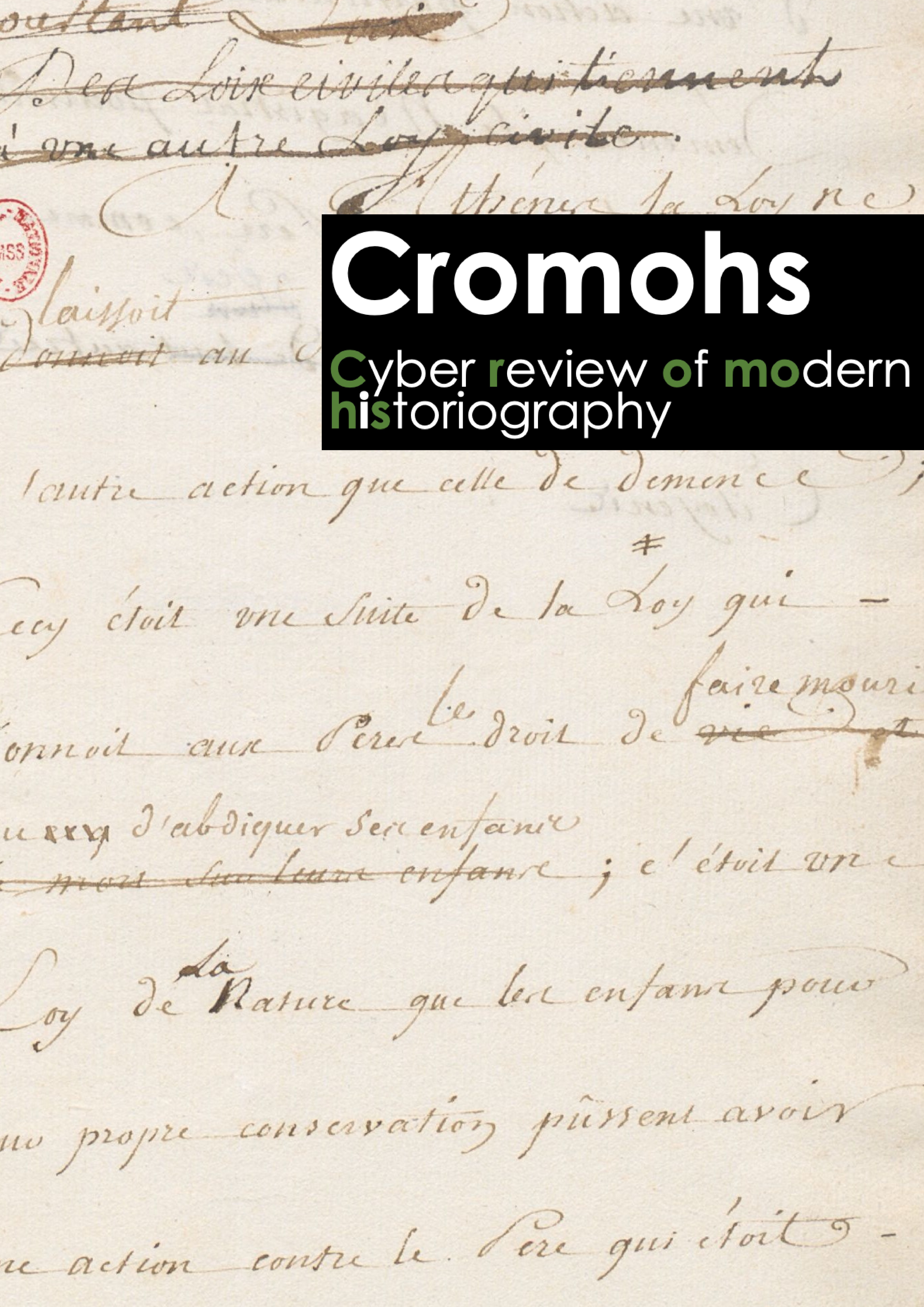About

ISSN 1123-7023 (online)

CROMOHS is a peer-reviewed, open-access electronic history journal published in English, and over the last two decades has established a solid reputation for scholarly rigour. With a marked international outlook, it aims to encourage methodological debate arising from original and creative dialogue between scholarly traditions, and to promote innovative approaches to archival research. CROMOHS acts as a focal point and forum for challenging and fresh scholarship on fourteenth- to nineteenth-century intellectual, social and cultural history in a global perspective. It seeks to move beyond a strictly regional and Eurocentric approach, with a preferential view towards histories of transcultural contacts and connections. Articles relating to Muslim societies (fourteenth-nineteenth centuries) are most welcome. More generally, CROMOHS strongly encourages contributions engaging with extra-European cultures and societies. CROMOHS invites theoretically informed work from a range of historical, cultural and social domains that interrogate cross-cultural and connected histories, intersecting the history of knowledge, emotions, religious beliefs, ethnography, cartography, the environment, material culture and the arts.






Editors-in-Chief:
Daniel Barbu, CNRS Paris, France
Caterina Bori, University of Bologna, Italy
Giovanni Tarantino, University of Florence, Italy
Paola von Wyss-Giacosa, University of Zurich, Switzerland
Cromohs is indexed in:

Current IssueNo 27 (2024): Cromohs
Published July 7, 2025
Issue Description
ARTICLES
Vanda Anastacio, The Stories Paper Tells: Paper in the Life of the Alorna Family, Prisoners of State (1759-1777)
Philippe Bornet, Historiographical Encounters in Colonial South India: The Kēraḷōlpatti’s Multiple Lives
Claire Bustarret, Mobility of the Paper Medium and Dynamics of Writing in Montesquieu’s Drafts
Matteo Lazzari, Aldrovandi and New World Volcanoes: The Discovery of a Sixteenth-Century Woodblock of Popocatepetl
Martina Mampieri, The Curious Case of the Jew Who Married a Buffalo: An Alleged Blood Libel in Hamburg (1687)
James Redfield, Kant’s Racist... More

